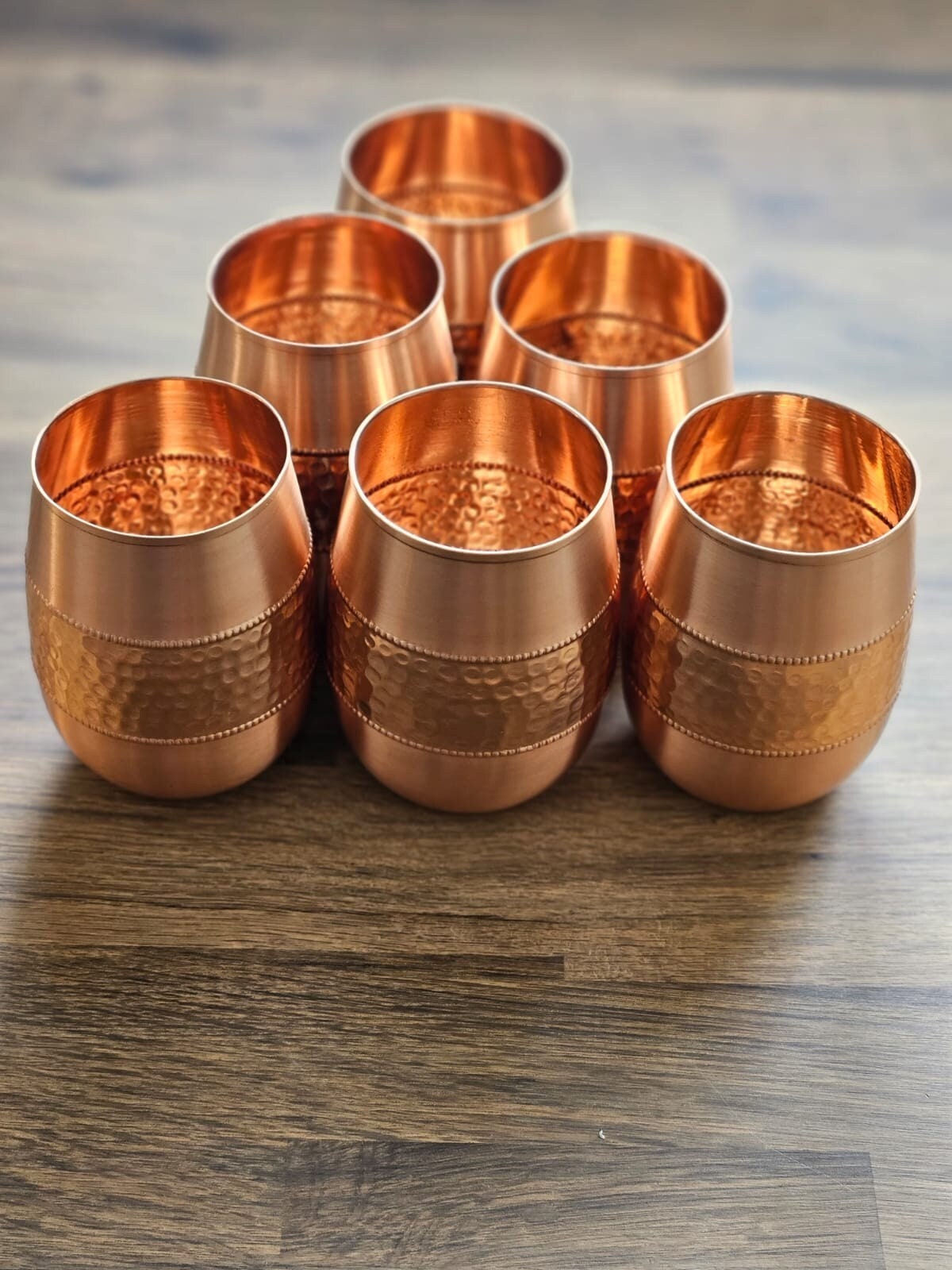The Ultimate Guide to Lasting Dealing With Eco-Friendly Copper Products
The Ultimate Guide to Lasting Dealing With Eco-Friendly Copper Products
Blog Article
Just How Copper Products Add To Lasting Practices in Various Sectors
In renewable power systems, for instance, copper enhances the functionality of solar and wind technologies, while its application in building lessens waste through longevity. As industries look for to adopt even more sustainable techniques, the function of copper could prove essential in attaining environmental objectives.
Copper in Renewable Energy
Copper plays a vital function in the innovation of eco-friendly power technologies, serving as a crucial conductor in numerous applications. Its exceptional electrical conductivity and resistance to corrosion make it a perfect product for electrical circuitry, which is important in solar panels, wind turbines, and power storage systems. In solar photovoltaic or pv systems, copper is made use of in the affiliations and wiring, making it possible for efficient power conversion from sunshine to electrical power.
In wind energy, copper is indispensable to the generators and transformers that transform kinetic power right into electrical energy, making certain optimal efficiency and reliability. The demand for electrical vehicles (EVs) is increasing, with copper being an essential part in batteries, motors, and charging infrastructure. The change to EVs substantially improves the demand for copper, as these lorries typically make use of 4 times a lot more copper than conventional inner combustion engine lorries.
As the globe seeks to minimize climate adjustment and shift to sustainable energy sources, copper's role comes to be significantly important. The material not just boosts the performance and longevity of sustainable energy systems however additionally sustains the more comprehensive goal of lowering greenhouse gas exhausts and promoting a lasting future.
Eco-Friendly Building Materials
In the last few years, there has actually been a remarkable shift in the direction of the adoption of eco-friendly building and construction products in response to expanding environmental problems. This change is encouraged by the demand for sustainable options that reduce environmental impacts while maintaining architectural honesty and aesthetic allure.
Copper, recognized for its longevity and recyclability, has become a principal in this sector. It can be made use of in roofing, plumbing, and electric systems, adding to energy performance and reducing waste. Copper's long life implies less replacements in time, more improving its sustainability account.
In addition, materials such as bamboo, reclaimed wood, and recycled steel are gaining popularity. These options not only supply lowered ecological impact however additionally advertise source conservation. As developing codes significantly emphasize sustainability, architects and builders are integrating these materials into their jobs, promoting development in style.
The boosting adoption of environmentally friendly building products mirrors a more comprehensive dedication to sustainability in the developed atmosphere. By prioritizing these materials, the building and construction market can substantially reduce its carbon footprint, line up with regulatory requirements, and support a much healthier ecosystem for future generations. This trend marks an essential step towards a more sustainable future in building.
Copper's Duty in Healthcare
Current researches have highlighted the considerable duty of copper in medical care setups, particularly due to its antimicrobial residential properties. Copper surface areas have been shown to reduce the visibility of microorganisms, consisting of infections and bacteria, by approximately 99.9% within a short period. This impressive effectiveness makes copper a vital material for high-touch surface areas in healthcare facilities, such as doorknobs, bed rails, and IV poles, thus contributing to improved infection control procedures.
In addition to its direct antimicrobial effects, copper also plays a function in the wider context of medical facility sustainability (Copper Products). By integrating copper into medical equipment and home furnishings, healthcare centers can reduce the occurrence of healthcare-associated infections (HAIs), which not just improves individual outcomes yet also decreases the expenses connected with extended medical facility stays and extra treatments
Moreover, copper's resilience and recyclability line up with sustainable methods, permitting liable resource monitoring. As health care systems increasingly prioritize both patient safety and ecological stewardship, the integration of copper items is ending up being a lot more prevalent. This dual benefit emphasizes copper's vital contribution to a healthier, more secure, and more lasting medical care setting.
Sustainability in Transport

Furthermore, copper's durability and deterioration resistance contribute to the durability of transport facilities (Copper Products). In rail systems, as an example, copper elements improve the dependability and performance of signaling and power systems, necessary for minimizing hold-ups and energy intake. In addition, copper's role in renewable resource systems, such as solar and wind, sustains lasting transport services by offering tidy power for electric transit choices
Investments in copper innovation not only foster sustainability however additionally promote financial development and job creation in eco-friendly industries. As markets make every effort to satisfy strict ecological laws, the application of copper items in transport becomes a pivotal technique in accomplishing sustainability goals and promoting a cleaner, more effective future.
Copper and Round Economic Climate
As the world significantly visit our website welcomes sustainability, the role of copper in the round economic situation comes important link to be ever before a lot more substantial. Copper's inherent buildings-- such as its recyclability, conductivity, and toughness-- placement it as an essential material in a resource-efficient economic climate. The round economic situation aims to decrease waste and make the most of source use via recycling and reusing materials, and copper master this respect.
The metal can be reused forever without loss of top quality, making it a suitable candidate for lasting techniques throughout different fields, consisting of construction, electronics, and eco-friendly energy. By recovering and reprocessing copper from end-of-life products, sectors can dramatically decrease the demand for virgin products, thereby decreasing environmental influences related to mining and processing.
Furthermore, the integration of copper into circular economy structures not just saves sources but additionally fosters technology. Services that focus on copper recycling add to a much more lasting supply chain, improving their competition while lining up with regulatory demands and customer preferences for environmentally liable products.
Conclusion
In final thought, copper items substantially add to lasting practices across multiple markets. Their essential role in improving renewable resource technologies, advertising environmentally friendly construction materials, supporting infection control in health care, helping with sustainable transportation, click here to find out more and symbolizing the principles of a circular economic climate highlights the convenience and significance of copper. By integrating copper into different applications, markets can attain higher performance, decrease ecological influence, and straighten with worldwide sustainability objectives, eventually fostering a more sustainable future.

Copper's exceptional conductivity makes it a preferred product in electric lorry (EV) systems, enhancing energy efficiency and efficiency. Additionally, copper's role in eco-friendly energy systems, such as solar and wind, supports lasting transportation remedies by offering clean power for electrical transit choices.
Their crucial function in enhancing sustainable power modern technologies, promoting eco-friendly building products, sustaining infection control in healthcare, facilitating sustainable transportation, and personifying the concepts of a circular economy highlights the flexibility and significance of copper.
Report this page